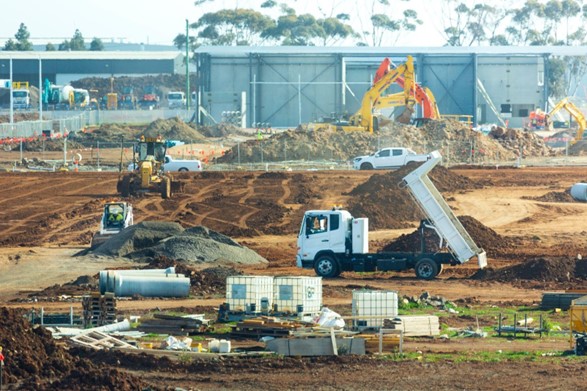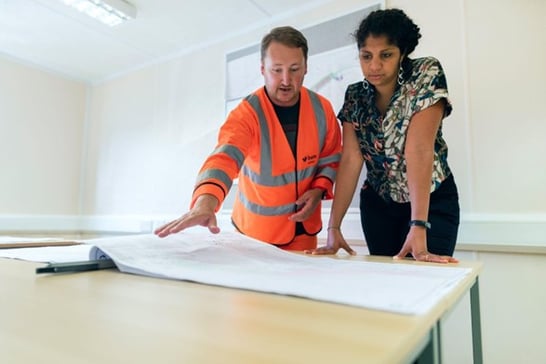
What Does a Construction Estimator Do? Dive into their Crucial Role
Construction estimators – the unsung players in project success
In the construction industry, the role of a construction estimator is often underappreciated. But what does a construction estimator do? Why are they so vital to determining the success of a company, especially those involved in heavy construction projects such as roads and large-scale infrastructure?
Construction estimators are essential strategists whose work can drive the feasibility and success of a project. Their expertise extends into cost analysis, project management, and understanding technological tools like construction estimating software.
In heavy construction, the foresight and precision of an estimator can significantly impact the outcome of a project. These large-scale and complex projects require an extensive variety of building materials and highly skilled laborers, making it necessary for an estimator to compile a detailed list of everything that is needed to estimate construction costs and determine the projected expenses.
We’ve put together a detailed guide on the multifaceted role of a construction estimator, covering their responsibilities, the specifics of the construction bidding process, and how technology like construction estimating software has transformed the job. Join us in uncovering the different layers of this essential profession and understanding the impact it has on the construction sector.

Defining the role of a construction estimator
A construction estimator is someone who calculates how much a construction project will cost. However, this description only scratches the surface of an estimator’s responsibilities and impact.
According to the construction estimator job description from the U.S. Bureau of Labor Statistics, a construction estimator carefully analyzes the cost of materials, labor, and other expenses that may arise during a project. They need to have a thorough understanding of the construction industry and be able to read blueprints and technical documents to prepare estimates. Estimators also often have a background in business or finance as they handle calculating the cost of high-value items and regularly adjust estimates to ensure profitability.
Estimators also have an integral role in project planning—they work closely with engineers, architects, and project managers, providing detailed reports that help shape a project’s design and execution. This collaboration is essential in ensuring the project remains feasible, within the budget and timeline.
In large-scale civil construction projects like roads, bridges, and other infrastructure, the role of an estimator becomes even more important. On these projects, the estimator needs to consider other facts such as the terrain, potential environmental impact, and the vast scale of operations, which add complexity to the construction cost estimation process.
Overall, a construction estimator acts as a bridge between a project’s initial concept and its execution. Their skill in estimating, supported by tools like TCLI’s construction estimating software, Estimating Link®, is vital in turning plans into reality, ensuring that projects are completed on time and within budget.
Key components of a construction cost estimate
Creating a construction cost estimate involves a thorough analysis of the construction plan and related documents. As the Construction Management Association of America’s guide on construction estimating explains, the following components are generally included in an accurate cost estimate.
Direct costs: These are costs that are directly related to construction activities, including expenses for materials, labor, and equipment used in the building process. Direct costs typically make up the bulk of an estimate.
Indirect costs: While these costs are not directly related to the physical construction of a project, they are crucial to its execution. Indirect costs can include utilities, quality control, administration, permits, security, and legal fees, among others.
Labor hours: This component comprises all costs associated with the actual construction labor. It includes calculating wages for the construction team, estimating the cost of each task involved in a project, and considering potential overtime.
Subcontractor expenses: In many projects, certain tasks are outsourced to subcontractors. A construction estimate should include the projected expenses for these subcontractors, covering their labor, materials, and equipment. This ensures a full calculation of all project-related costs, even those that extend beyond the responsibilities of the primary construction team.
Breaking down the construction estimating process
At the outset of a project, a construction estimator engages in a comprehensive analysis of a project’s plan. This step is about understanding the physical dimensions and components of a project, as well as the environmental, logistical, and regulatory challenges that could impact the construction process.
 Then, the estimator moves on to dissect the various cost components, which we discussed above. In complex, expansive horizontal construction projects, the amount of materials and workforce required can be substantial. Estimators need to factor in current market rates, potential supply chain problems, and labor availability, all of which can impact the cost of a project.
Then, the estimator moves on to dissect the various cost components, which we discussed above. In complex, expansive horizontal construction projects, the amount of materials and workforce required can be substantial. Estimators need to factor in current market rates, potential supply chain problems, and labor availability, all of which can impact the cost of a project.
Risk assessment is another important part of the estimation process. Estimators must consider potential hurdles like adverse weather, updates to laws and regulations, or other issues that could arise. Accurately accounting for these risks in the initial estimate can save the project from unexpected financial pitfalls.
Finally, the estimator compiles all this information into a detailed cost report. This serves as the strategy for financial management throughout the construction of the project, outlining expected expenses and guiding the project's fiscal trajectory.
The transformative power of construction estimating software
The development of construction estimating software has transformed how project costs are planned and managed. This technology simplifies the estimation process, offering a level of precision and efficiency previously hard to achieve.

In fact, the Construction Management Association of America conducted a survey in 2021 that gathered insights from over 500 construction professionals; 42% of them said that improved estimation accuracy is the top benefit of utilizing estimating software.
A major advantage of construction estimating software is the clarity it brings to cost management. It streamlines complex calculations and integrates various data sets, reducing errors and presenting a clearer financial outlook. A blog from Capitol Technology University, a premier STEM institution in Washington, D.C., highlights the efficiency of this software. It facilitates swift and easy calculations through features like auto-counts, intelligent paste logic, and the use of customizable style sheets and templates. These tools are vital for effective budget management and providing easy-to-understand information to stakeholders.
Tailored for heavy construction projects, exemplifies these benefits while offering unique features. It organizes estimates in a centralized system, enhancing the efficiency of managing multiple project aspects. This organization aids in faster, more informed decision-making.
Estimating Link also allows for detailed cost analyses of different project phases, offering in-depth insights into budget allocations. Additionally, estimators can utilize existing project data for new estimates, thus streamlining the process for similar or recurring projects. Another notable feature of the program is its collaborative functionality; multiple estimators can simultaneously work on a project, expediting the estimation process.
Clearly, construction estimating software marks a major stride in enhancing construction project efficiency, and it has become a vital resource for professionals responsible for calculating the costs of complex projects.
Summing up the impact of construction estimators
Construction estimators are key players in the success of any construction project, especially in heavy construction.
Estimators ensure accuracy in budgeting by carefully analyzing various project costs. Their expertise becomes even more vital in heavy and civil construction due to its unique challenges. The introduction of construction estimating software like Estimating Link® has notably transformed how the job is performed, enhancing efficiency and enabling collaborative project planning.
For further insights into how Estimating Link® can support your construction projects, or to consult with our team of heavy construction estimating experts, don't hesitate to contact us at TCLI. We can ensure the success and cost-effectiveness of your construction endeavors with our specialized expertise.




